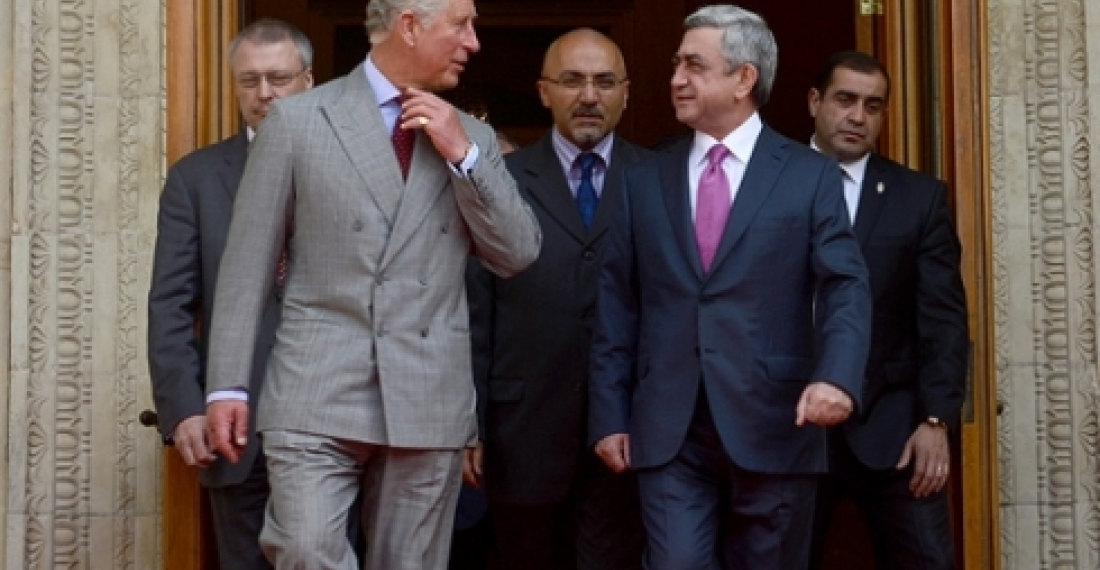Prince Charles, The Prince of Wales is currently on a visit to Armenia. This morning he met President Sargsyan at the Presidential palace in Yerevan. The Heir to the British Throne is in Yerevan at the invitation of Yerevan My Love Charitable Foundation.
President Sargsyan welcomed Prince Charles to Armenia where,the President said, he has the opportunity to learn about the country and its people and heritage. The Press Service of the Armenian President said that Sargsyan stressed that Armenian-British relations have a long history and the Armenian people treat the British people and the Royal Family very warmly. The President asked Prince Charles to convey his salutations and best wishes to Queen Elizabeth II.
"Our people's disposition toward you is special, and this is also due to the fact that you carry out numerous charitable activities," Serzh Sargsyan told to Prince Charles. He also thanked Armen Sarkissian, the Yerevan My Love Charitable Foundation Chairman, Armenia's former Prime Minister, for launching this foundation and organising Prince Charles' visit to Armenia.
Commonspace.eu political editor said in a comment that "the visit of the Prince of Wales to Armenia is significant. Although Prince Charles is in Yerevan on a private visit, his visit would not have been possible without co-ordination with the UK government and reflects a high point in relations between Britain and Armenia. Prince Charles becomes the most senior member of the British Royal family to visit the caucasus Region in modern times. His choice of Armenia reflects the Prince's interest in cultural and religious affairs. The visit is however also of importance to the whole region since it contributes to reaffirming the important role that the South Caucasus now plays in global affairs, as well as the success of the independence of the three South Caucasus countries since they regained their freedom in 1991."
source: commonspace.eu
photo: The Prince of Wales accompanied by Armenian President Serzh Sargsyan leaving the Presidential Office in Yerevan on 29 May 2013 (photo courtesy of the Press Service of the Armenian President.)







